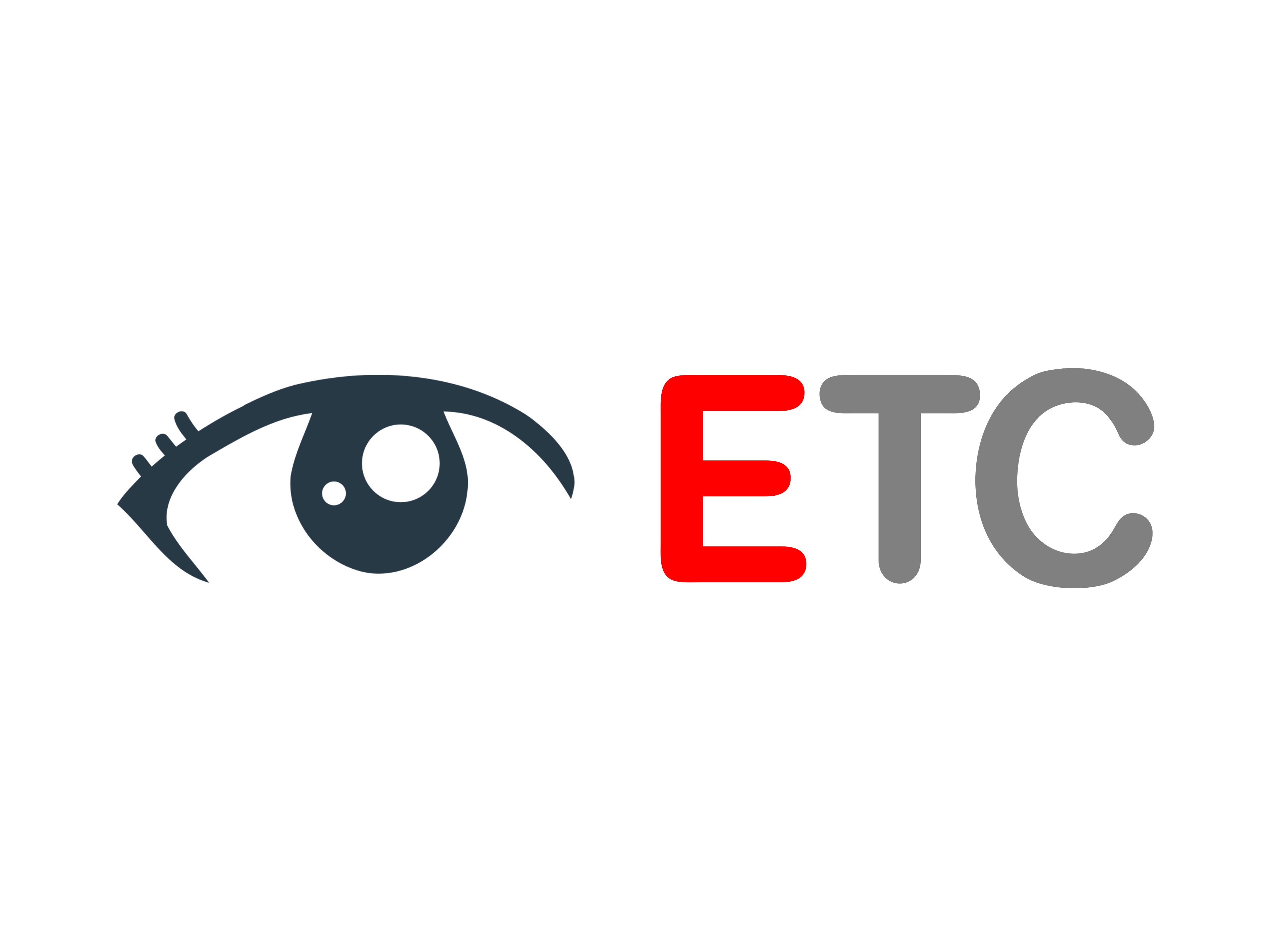Personality Type: Aesthetic Intellectual:
The “Aesthetic Intellectual” personality type represents individuals with a unique blend of creativity and intellect. These individuals are deeply attuned to the beauty and aesthetics of the world and are driven by a passion for intellectual exploration.
They find inspiration in the arts and sciences, seeking to understand and appreciate their profound connections.
Core Competencies:
FIT Score: 7.8
Emotional Intelligence (EQ)
Moderate – Aesthetic Intellectuals may be more focused on ideas and aesthetics than on emotional nuances, but they are not devoid of emotional understanding.
Stress Tolerance
Moderate to High – Their intellectual pursuits can provide a refuge from stress, although they can also become sources of stress when challenges arise.
Team Compatibility
Moderate – They may prefer solitary intellectual pursuits but can contribute uniquely to a team, especially in problem-solving.
Communication Skills
High – They are often articulate and can express complex ideas clearly, although they may use terminology that is not easily understood by everyone.
Conflict Resolution
Moderate – They are likely to approach conflict intellectually and seek logical solutions, which may not always address the emotional aspects of a situation.
Motivation
High – Their intellectual and aesthetic pursuits are a significant source of motivation.
Adaptability
Moderate – They are open to new ideas but may be somewhat set in their ways when it comes to their intellectual or aesthetic views.
Empathy
Moderate – While they may be more focused on ideas than people, they are capable of empathy, especially when it relates to intellectual or ethical concerns.
Resilience
High – Their intellectual pursuits often provide a strong foundation for resilience, allowing them to see setbacks as opportunities for growth.
Self-Regulation
High – The nature of their interests often requires a high level of discipline and focus.
Optimism/Pessimism
Moderate – Their outlook can vary widely depending on how they assess the state of their intellectual or aesthetic goals.
Work-Life Balance
Moderate to Low – Their deep involvement in intellectual activities can sometimes overshadow other aspects of life.
Ambition
High – They are often highly ambitious in their intellectual or aesthetic pursuits, even if those pursuits are not traditionally associated with career advancement.
Interpersonal Skills
Moderate – While they can be engaging and stimulating conversationalists, their intense focus on their interests can sometimes make them seem aloof or socially awkward.
Honesty and Integrity: 9/10
Aesthetic Intellectuals highly value honesty and integrity, often aligning their actions with their ethical and aesthetic principles. They are usually straightforward and expect the same from others.
Life Balance
Strengths:
-
Creativity: Aesthetic Intellectuals are often highly creative and have a unique ability to see beauty and artistic value in various aspects of life. They excel in artistic endeavors and can generate innovative ideas.
-
Intellectual Depth: They have an intense intellectual curiosity and a thirst for knowledge. They enjoy intellectual challenges and are often well-read and knowledgeable in various fields.
-
Appreciation for Beauty: They sincerely appreciate aesthetics and can find beauty in the world around them. They often enjoy art, music, literature, and design.
-
Problem-Solving: Their creative thinking and intellectual depth enable them to approach problems from unconventional angles and find unique solutions.
-
Attention to Detail: Aesthetic Intellectuals often pay close attention to detail, which can be valuable in artistic pursuits, design, and analytical work.
-
Open-Mindedness: They are typically open to new ideas and experiences, which allows them to embrace different perspectives and explore diverse interests.
Weaknesses:
-
Prone to Overthinking: Their deep intellectual nature can sometimes lead to overthinking and analysis paralysis, making it challenging to make decisions.
-
Sensitivity to Criticism: Aesthetic Intellectuals may be highly sensitive to criticism, especially concerning their creative work. Negative feedback can affect them profoundly.
-
Difficulty with Routine Tasks: They may find routine and repetitive tasks that could be more interesting and challenging to manage, leading to procrastination.
-
Perfectionism: Their pursuit of aesthetic perfection and intellectual excellence can lead to perfectionism, which, if taken to extremes, can hinder productivity.
-
Emotional Sensitivity: They may be more emotionally sensitive and prone to mood swings, especially when their creative or intellectual projects are at stake.
-
Difficulty in Practical Matters: Aesthetic Intellectuals may need help with practical aspects of life, such as finances or organization, as they may prioritize intellectual and artistic pursuits over practical concerns.
It’s important to remember that these strengths and weaknesses can vary among individuals with the “Aesthetic Intellectual” personality type. While they may face challenges in certain areas, their unique combination of creativity, intellect, and appreciation for beauty can be precious in artistic, intellectual, and cultural pursuits. Understanding and leveraging these traits can lead to a fulfilling and enriching life.
Jobs & Action Plan
Job profiles that are well-suited for Aesthetic Intellectuals:
Research and Development, Education, Academia
-
Graphic Designer: Aesthetic Intellectuals can use their creative and artistic skills to design visual materials, including graphics, logos, and web design.
-
Interior Designer: They can create aesthetically pleasing and functional interior spaces, combining their love for design and attention to detail.
-
Art Curator or Museum Director: Those passionate about art and culture can work in museums or galleries, curating exhibitions and preserving artistic heritage.
-
Architect: Combining aesthetics and structural design, architects create buildings and spaces that are both functional and visually appealing.
-
Writer or Poet: Aesthetic Intellectuals can use their love for language and literature to write novels, poetry, or articles that engage readers.
-
Fine Artist: They can pursue a career as a painter, sculptor, or multimedia artist, expressing their creativity through visual art forms.
-
Photographer: Capturing the world’s beauty through photography allows them to combine aesthetics with technical skills.
-
Fashion Designer: Creating clothing and accessories that reflect their style and aesthetics can be a fulfilling career path.
-
Film Director or Producer: They can excel in film, using their creative vision to craft visually stunning and intellectually engaging movies.
-
Archaeologist or Art Historian: Aesthetic Intellectuals interested in history and culture can specialize in archaeology or art history, preserving and studying artifacts and artworks.
-
Graphic Novelist or Illustrator: Combining storytelling with visual art, they can create graphic novels or illustrations for books and magazines.
-
Landscape Architect: Designing outdoor spaces and landscapes allows them to connect with nature and aesthetics.
-
Composer or Musician: Those passionate about music can compose their pieces or perform as musicians, blending creativity and intellectual depth.
-
Philosopher or Theorist: Engaging in intellectual discourse and developing theories about aesthetics, ethics, or culture can be fulfilling.
-
Historical Preservationist: Working to preserve historically significant buildings and landmarks combines their appreciation for aesthetics and history.
-
Cinematographers: They specialize in cinematography and are responsible for the visual aspects of film and television production.
-
Antiques Dealer or Appraiser: Aesthetic Intellectuals interested in antiques and collectibles can work as dealers or appraisers.
-
Creative Director: Leading creative teams and overseeing the artistic direction of projects in industries like advertising and marketing.
-
User Experience (UX) Designer: Designing user interfaces for websites and apps, focusing on functionality and aesthetics.
-
Philanthropic Advisor: Those passionate about the arts can help individuals and organizations make charitable donations to support cultural initiatives.
Aesthetic Intellectuals must choose careers that align with their passions and interests while allowing them to express their creativity and engage in intellectual pursuits. They should seek roles that provide artistic and intellectual growth opportunities, as these are critical factors for their job satisfaction.
Incompatible Jobs for Aesthetic Intellectuals:
-
Waste Management Specialist: Dealing with refuse and waste might not align with their appreciation for aesthetics.
-
Construction Laborer: Physically demanding and less aesthetically focused work may not suit them.
-
Factory Worker: Repetitive tasks in a manufacturing setting may not provide aesthetic opportunities.
-
Logging Worker: Working in natural resource extraction might conflict with their appreciation for nature.
-
Sewage Worker: Dealing with wastewater management may not align with their aesthetic sensibilities.
-
Demolition Worker: Involves destructive actions that contrast with their appreciation for preservation.
-
Oil Rig Worker: Offshore work in harsh environments may not offer aesthetic experiences.
Aesthetic Intellectual – Action Plan
-
Strengths: Leverage your self-efficacy, well-being, and intellectual curiosity.
-
Action Plan:
Consider roles in research, education, or knowledge-based industries.
Engage in continuous learning and intellectual pursuits.
Share your knowledge and insights with others.
“Aesthetic Intellectual” personality type, an action plan can be crafted to support their pursuit of knowledge and appreciation for beauty while also encouraging personal growth, emotional resilience, and effective social interaction. Here’s a detailed approach:
1. Emotional Intelligence (EI) Quotient
-
Action: Tailored EI development focusing on appreciating emotional depth in art and literature.
-
Purpose: To deepen their understanding of emotions conveyed through aesthetics and enhance personal empathy.
-
Outcome: Greater emotional insight and connection with others.
2. Stress Response Analysis
-
Action: Stress relief techniques that incorporate aesthetic enjoyment, such as art appreciation and mindful reading.
-
Purpose: To leverage their natural inclination towards aesthetics as a healthy stress management tool.
-
Outcome: Improved stress resilience and an enriched aesthetic experience.
3. Adaptability Index
-
Action: Encourage participation in diverse aesthetic and intellectual communities.
-
Purpose: To expand their adaptability in various cultural and intellectual contexts.
-
Outcome: Enhanced ability to navigate and contribute to diverse intellectual environments.
4. Cognitive Styles
-
Action: Cognitive exploration through interdisciplinary studies combining arts, literature, and science.
-
Purpose: To stimulate their intellectual curiosity and cognitive flexibility.
-
Outcome: A broader, more integrated understanding of the world.
5. Interpersonal Dynamics
-
Action: Facilitate discussion groups and forums around aesthetic and intellectual topics.
-
Purpose: To improve interpersonal skills within the context of shared intellectual and aesthetic interests.
-
Outcome: Enhanced social engagement and collaborative intellectual exploration.
6. Values and Motivations
-
Action: Workshops to align personal values with intellectual pursuits and aesthetic appreciation.
-
Purpose: To ensure their intellectual and aesthetic activities are deeply connected to their values.
-
Outcome: More meaningful and fulfilling intellectual engagement.
7. Behavioral Patterns
-
Action: Self-reflection and feedback sessions on intellectual habits and aesthetic engagement.
-
Purpose: To cultivate productive habits and address any tendencies towards isolation or elitism.
-
Outcome: Balanced engagement with intellectual and social activities.
8. Communication Preferences
-
Action: Training in effective communication of complex ideas and aesthetic concepts to diverse audiences.
-
Purpose: To enhance their ability to share knowledge and aesthetic appreciation with broader groups.
-
Outcome: Improved impact and inclusivity in intellectual discourse.
9. Life Satisfaction and Fulfillment Metrics
-
Action: Regular fulfillment assessments derived from intellectual and aesthetic activities.
-
Purpose: To maintain a balance between intellectual pursuits, aesthetic appreciation, and other life domains.
-
Outcome: A fulfilling life that harmonizes intellectual and aesthetic satisfaction with overall well-being.
10. Neuroplasticity and Learning Styles
-
Action: Incorporate varied learning methods emphasizing creativity and critical thinking.
-
Purpose: To engage their intellectual flexibility and support lifelong learning.
-
Outcome: Continuous personal and intellectual growth.
11. Digital Behavior Analysis
-
Action: Monitor and analyze digital consumption patterns related to intellectual and aesthetic interests.
-
Purpose: To optimize digital engagements for positive impact on intellectual growth and aesthetic enjoyment.
-
Outcome: Healthy digital habits that enhance intellectual and aesthetic pursuits.
12. Cross-Cultural Dimensions
-
Action: Exposure to and analysis of aesthetic and intellectual traditions from diverse cultures.
-
Purpose: To enrich their understanding and appreciation of global aesthetic and intellectual landscapes.
-
Outcome: A more inclusive and comprehensive intellectual and aesthetic worldview.
This action plan is designed to nurture the “Aesthetic Intellectual” personality type’s love for knowledge and beauty while encouraging growth in areas such as emotional intelligence, adaptability, and social interaction. Each action step is intended to be both enriching and pragmatic, ensuring that Aesthetic Intellectuals can thrive in both their personal and professional lives.
Innovation & Leadership
Innovation:
Moderate to High – 8/10
-
Intellectual Creativity: Aesthetic Intellectuals are known for their deep thinking and intellectual creativity, often contributing novel ideas and concepts.
-
Aesthetic Innovation: They bring a unique perspective to innovation, combining intellectual depth with a focus on aesthetics and beauty.
-
Attention to Detail: Their ability to analyze and appreciate details often leads to innovative solutions with high precision.
-
Cross-Disciplinary Thinking: Aesthetic Intellectuals excel at bridging the gap between different fields of knowledge, fostering interdisciplinary innovation.
-
Thoughtful Design: They prioritize thoughtful and well-designed solutions, ensuring that innovation aligns with aesthetic and intellectual principles.
Leadership:
-
Intellectual Guidance: They provide intellectual guidance and mentorship to their teams, promoting critical thinking and intellectual growth.
-
Visionary Leadership: Aesthetic Intellectuals often lead with a vision incorporating intellectual depth and aesthetic considerations.
-
Interdisciplinary Collaboration: They encourage collaboration across different fields and departments, promoting a holistic approach to problem-solving.
-
Attention to Quality: Their leadership ensures that projects and innovations meet high standards of quality and aesthetics.
-
Thoughtful Decision-Making: They make decisions after careful analysis, considering the intellectual and aesthetic impact on their teams and organizations.
Aesthetic Intellectual Top Emotional Stages Categories:
-
Self-Efficacy
-
Well-being & Contentment
-
Social & Relational
Interests & Hobbies:
-
Art Galleries and Exhibitions
-
Philosophy Discussions
-
Poetry Reading and Writing
-
Classical Music Concerts
-
Independent Films
-
Museum Visits
-
Wine Tasting
-
Antique Collecting
-
Architectural Tours
-
Literary Salons

Three potential best matches based on complementary traits and potential for mutual growth:
-
Aesthetic Intellectual
-
Serene Philosopher
-
Joyful Creative
-
Thoughtful Analyzer
Growth Phases
-
“Explore diverse artistic and cultural expressions to broaden your aesthetic appreciation.”
-
“Engage in intellectual discourse to refine your critical thinking and analytical skills.”
-
“Pursue continuous learning in areas that spark your intellectual curiosity.”
-
“Collaborate with creative thinkers to challenge and expand your perspectives.”
-
“Cultivate an environment that inspires creativity and deep thought.”
-
“Share your knowledge and insights to mentor others in your field of interest.”
-
“Apply your aesthetic sensibility to create innovative solutions in your work.”
-
“Seek out interdisciplinary projects that allow you to combine aesthetic and intellectual interests.”
-
“Practice mindfulness to enhance your capacity for deep concentration and appreciation of beauty.”
-
“Reflect regularly on your experiences and knowledge to foster personal growth and self-understanding.”


